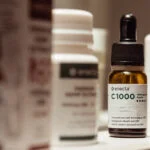Alcohol and Opioids: A Deadly Combination
Each substance on its own can slowly ruin a person’s life due to its destructive and addictive nature. But by consuming both substances simultaneously, users put themselves at huge risk of rapidly increasing adverse side effects or even overdose.
Whether an individual mixes alcohol and opioids mistakenly or enhance the effects of the opioids they are taking, mixing both substances is hazardous.
For example, consuming alcohol while under the effects of opioid medications can increase the sedative effects, which increases the chances of drowsiness, loss of consciousness and potentially overdose.[1]
Understanding how both alcohol and drugs work separately and together is an essential part of understanding the risks of both substances.
Whether you are worried about yourself, a family member, or a friend, knowing the dangers of mixing alcohol and opioids is vital to saving a life.
Opioids and Their Risks
Created for purely medicinal purposes, opioids, otherwise known as high strength painkillers, are prescribed when patients suffer from severe chronic pain, such as cancer, or pain from a surgery or injury.
Unfortunately, due to their addictive and dangerous natures, only GP’s can prescribe most opioid medications.
Also referred to as narcotics, prescription opioids include medications such as morphine, hydrocodone, oxycodone, and fentanyl. [2]
Even when not combined with alcohol, some of the most common side effects of opioids include:
- Nausea
- Sedation
- Vomiting
- Dizziness
- Mental fog
- Sleepiness
- Constipation
- Slurred speech
- Chronic fatigue
- Respiratory depression
Other less common but more debilitating side effects include:
- Muscle stiffness/tension
- Increased sensitivity to pain
- Swift, involuntary muscle jerks
- Immunologic and hormonal dysfunction
Although these medications are essential in managing complex and debilitating pain management needs, they can become highly addictive and put your life at risk of physical dependence or increased risk of further illness and diseases. [3]
Alcohol and Its Debilitating Effects
In contrast to prescription painkillers, alcohol has no medicinal purposes and is only used for recreational use. As a result, alcohol is widely misused worldwide, and the world’s livers suffer from it.
The liver is an amazingly regenerative organ, processing and eliminating the alcohol’s toxins. However, the liver can only handle so much.
Consuming more than one unit per hour of alcohol exceeds the liver’s ability to process the substance and leads to severe intoxication. Dangerous consumption of 4-5 drinks every two hours has high risks of alcohol poisoning and death. [4]
Alcohol on its own provides a myriad of other side effects, such as:
- Dizziness
- Confusion
- Poor sleep
- Drowsiness
- Slurred speech
- Irregular heartbeat
- Depressed breathing
- Blurry or double vision
- Poor physical coordination
- Impaired judgement leading to increased risk-taking
Drinking alcohol in small quantities or taking your opioid prescription painkillers in small amounts, just as your doctor has prescribed, should keep any negative, intoxicating symptoms to a minimum.
Unfortunately, however, the statistics suggest that an increasing number of people are at risk of mixing alcohol with various prescription drugs or are already doing so. [5]
Unfortunately, there are potentially lethal consequences to mixing alcohol and prescription opioids such as morphine, hydrocodone, or oxycodone.
For example, as a depressant, alcohol can make you feel sleepy or lightheaded. But combining alcohol with other drugs sends your brain confusing signals that tell your body to slow down its breathing, which ultimately could lead to a coma.
Although not prescribed medication, Heroin is also known as an opioid, and combing heroin with alcohol has further severe complications as both substances will work together to intensify the adverse effects. [6]
Recognising Alcohol or Opioid Addiction
Addicted or not, the continuous and problematic use of these substances can increase adverse health issues. Addiction develops due to an all-consuming consumption to keep using the substance, causing the individual to lose control over many vital aspects of their life.
Despite being aware of the negative consequences, consuming alcohol, opioids, or both is more important than the adverse side effects.
Mixing alcohol with opioids is dangerous in so many ways. This deadly cocktail can damage the brain and body, and the combination creates harmful side effects.
For example, combining both alcohol and opioids could increase both substances’ sedative and depressing respiratory effects. This combination can put the users at an increased risk of overdose, respiratory arrest, unconsciousness, coma, or death.
The ill effect on the respiratory system is one of the course’s most dangerous side effects. Opioid-related respiratory depression can deprive the body of oxygen and cause long-term brain damage, a condition that is increased by consuming both alcohol and opioids.
However, the real problem comes when breathing becomes slows enough to reduce the brain’s oxygen significantly. This potentially fatal condition is called hypoxia and can quickly result in coma or death. [7]
Therefore, mixing both substances is highly dangerous to users’ health, but unfortunately, this is not enough to stop many people from misusing both substances.
Of course, not all users of opioids will become addicted, and not all will mix alcohol with opioids.
But if there is a chance that you or a loved one has become addicted to either opioids, alcohol, or both, then it’s essential to know the signs and symptoms of opioid and alcohol addiction. [8]
Common signs and symptoms of addiction include:
- Increased tolerance and need to consume more of both or either substance
- Experiencing cravings or a strong compulsion to continue using the substance
- Trying but failing to reduce or stop misusing opioids or alcohol
- Drinking or taking opioids in higher amounts or more frequently than prescribed
- Using alcohol and opioids in situations that could be considered dangerous
- Hiding or lying about your drinking and opioid use
- Poor performance in work or school, or the inability to fulfil your work or family obligations
- Continuing alcohol and opioid misuse despite any problems it causes
- Giving up hobbies, charitable, social activities that were previously important to us
Help is Available
It’s not all doom and gloom. There is help available to those who need it. However, overcoming even one substance use disorder can be highly challenging.
So, if you find yourself struggling with multiple addictions, you must receive the appropriate dedicated professional help to give you the best chance of overcoming your addiction.
Deciding and committing to receiving help in a professional treatment programme is notably one of the most frightening steps of the process. But after that, you don’t have to do anything alone.
A great first start is talking to friends or family about your addiction. Offloading by explaining what you are going through and how you are committed to receiving help is a great way to feel supported. Your friends and family will usually want to help you.
What’s more, you should know that you are entitled to NHS care just like everyone who needs medical treatment. There are plenty of ways you can get help from the NHS and other resources, such as:
1. Your GP can discuss your addiction with you to try and find you the best treatment plan. They may recommend an in-practice treatment programme of referral to a local drug service or rehab, depending on the severity of your addiction.
2. Help from charity and private drugs treatment. Of course, the NHS isn’t your only form of help. Addiction support can also be obtained from charities and confidential drug and alcohol treatment organisations that are more than happy to help you. You can find a list of helpful organisations through the Adfam website.
Once you have secured the help you need, your drug treatment may involve many methods that combine to give you the best chance of success in sobriety. But, of course, what treatment you receive will depend on the type and severity of addiction, plus your circumstances.
These therapies can include:
- Self-help
- Support groups
- Talking therapies, such as CBT
- Holistic therapies such as Yoga and meditation
- Medically managed withdrawal via detoxification clinics
It’s not too late. Even if you feel your life has been irreversibly ruined by opioid and alcohol misuse, there is still time to turn things around.
A recovery programme can help you attain long term recovery. If you’re struggling with addiction, hopefully, you’ve come to a place where you feel confident about reaching out for help.
- https://www.niaaa.nih.gov/publications/brochures-and-fact-sheets/understanding-dangers-of-alcohol-overdose ↑
- https://www.imperial.nhs.uk/~/media/website/patient-information-leaflets/pain-management/controlling-your-pain-with-opioids.pdf ↑
- https://pubmed.ncbi.nlm.nih.gov/18443635/#:~:text=Common%20side%20effects%20of%20opioid,in%20turn%20inadequate%20pain%20management. ↑
- https://shop.ucsc.edu/alcohol-other-drugs/alcohol/your-body.html ↑
- https://www.cdc.gov/media/releases/2019/p0611-people-opioids-drink.html ↑
- https://www.ncbi.nlm.nih.gov/pmc/articles/PMC5832605/ ↑
- https://www.ncbi.nlm.nih.gov/books/NBK482316/ ↑
- https://www.ncbi.nlm.nih.gov/pmc/articles/PMC5832605/ ↑





